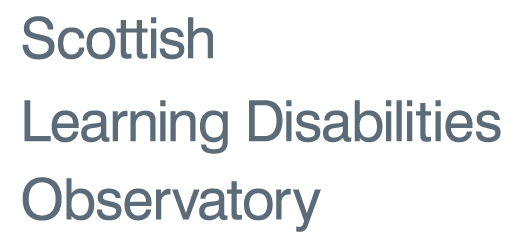Wider determinants of health

The impact of violence and hate crime on the health and wellbeing of people with learning disabilities
People with learning disabilities are far more likely to experience violence and hate crime at all stages of their lives, than the general population. People with learning disabilities also experience significant barriers to reporting violence which means that their experiences often remain unseen and unheard. With this qualitiative study, we wanted to understand more about the violence and hate crime experienced by people with learning disabilities in Scotland and how this impacts on their health and wellbeing. Read more about this study.

Reproductive (in)justice and inequalities in the lives of women with intellectual disabilities in Scotland
Women with learning disabilities continue to face systemic inequalities in relation to their sexual and reproductive health and wellbeing. This qualitative study explores the experiences of women with learning disabilities in Scotland to understand more about the barriers they face in their reproductive lives. Find out more about the project here.

Health of young people with autism during transition to adulthood
This project aimed to investigate general health status in young people with autism with and without intellectual disabilities over the transitional period, and quantify the extent to which personal characteristics, parental relationships and household income are associated with general health status. Read about this research and our findings here.

Our Bodies, Our Rights: Identifying and Removing Barriers to Disabled Women's Reproductive Rights in Scotland
This research explores the reproductive health of women with learning disabilities in Scotland and how this impacts on wellbeing, experiences of sexual and maternal health and pregnancy. Read about this qualitative research and our findings here.

Hate Crime
People with learning disabilities are between two and four times more likely to experience hate crime, targeted violence and harassment than other disabled people and even more likely to be subject to violence and targeted harassment than the general population. Read about our research and findings here.

How transition to adulthood affects health and wellbeing in young people with learning disabilties
We investigated if transition to adulthood was a risk period for poor health in people with intellectual disabilities. As we could find no synthesis of evidence on health and wellbeing outcomes during transition in this population, this review aimed to answer this question. Read about our findings here.

The impact of transition on health and wellbeing in young people with learning disabilities: Qualitative study
Transition from school may be a period of vulnerability for young people with learning disabilities. Within the literature poor outcomes across employment, independent living and social domains are documented. This study aimed to gain insights into the transition experiences of young people with learning disabilities through semi-structured interviews with young people and their parents. Read about our research and findings here.

Health of young people with learning disabilities during transition to adulthood
This project aimed to investigate general health status in young people with intellectual disabilities with and without Down syndrome over the transitional period, and quantify the extent to which personal characteristics, parental relationships and household income are associated with general health status. Read more about this research here.
